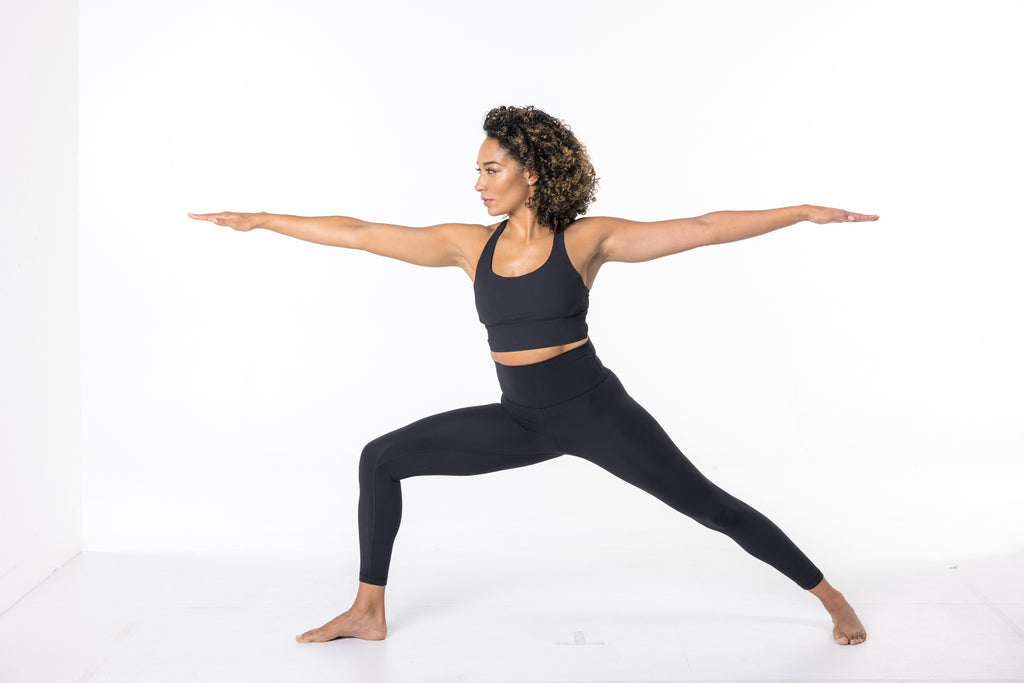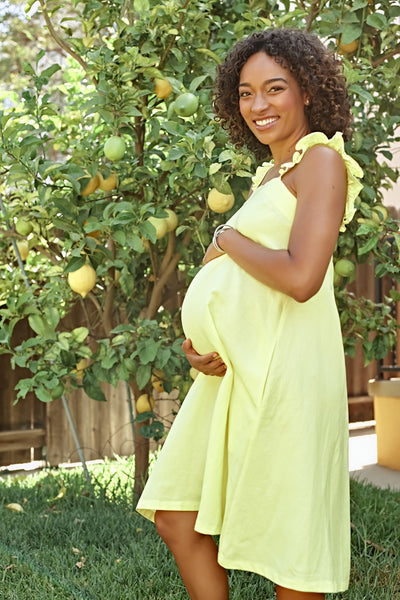Are you focused on moving your body thoughtfully this year? Us too. We know the beginning of the year is ripe with aggressive goal setting and hustle culture, but instead of that we’d like to offer you an alternative: Decide to move your body with intentionality, for the sake of your overall mind and body wellness. The benefits extend all the way to your reproductive hormone health.1
To guide us with her wisdom, we checked in with Perelel Panel member and Pre and Postnatal Trainer and Doula, Rachel Nicks, to learn how to best support our reproductive health through exercise.
What type of exercise best supports reproductive health?
“Movement is key. Movement relieves stress, which is a huge benefit all around. I believe it is important to find fitness disciplines that excite you and make you feel good inside and out. Varying your workouts is also important to have balance in your mind and body. For example, cardio, strength training, and yoga,” Nicks suggests.
“I am a huge advocate of pelvic floor health. And my approach is inside out. I believe it is important for all women to do pelvic floor exercises. The pelvic floor is the foundation to your core and overall strength. With time and definitely with pregnancy and childbirth the pelvic floor endures a lot to say the least. Therefore, it is important to maintain the strength and flexibility of your pelvic floor.”
“Movement is key. Movement relieves stress, which is a huge benefit all around."
What can over-exercising do to women and their hormones?
“Balance is important. Many women can set extreme fitness and weight loss goals and not approach them in a healthy and balanced way. Your mindset is everything. I do not suggest coming to a workout only to lose weight or because you ‘hate’ your body or think you are ‘fat’ or think you ‘should’ look a certain way. Show up for yourself because you want to care for yourself and treat yourself well. Until we love what we feel on the inside we will never love what we see on the outside. Set goals and give yourself grace. Listen to your body, it will tell you,” Nicks says.
"Show up for yourself because you want to care for yourself and treat yourself well. Until we love what we feel on the inside we will never love what we see on the outside."
“Missing periods is not a good sign. The body is out of whack and needs a reset of care and balance. Exercise itself doesn’t cause menstruation to stop but it’s the mismatch between energy consumed and energy used, resulting in what’s called low energy availability,” Nicks explains. “When your body doesn’t have enough energy to keep your systems humming, it shunts energy away from nonessential ones like reproduction and growth, including building bone.”
How much should we be working out?
“I would say committing to three days a week for a minimum of 30 minutes is a wonderful start. I also know that life can be very full and there are days you feel you have nothing to give so another wonderful approach is to aim to move daily for 15 minutes.
“I believe if you vary your workouts, it helps to motivate you to show up and be inspired. I also know that movement fuels the mind and body so just move. Once you start you will often feel fueled and motivated to keep going,” Nicks says.
Are there any specific exercises that benefit reproductive health?
“Strength training and HIIT workouts as well as yoga really help reduce the cortisol levels in the body and fight hormonal imbalance,” Nicks suggests. Specifically, she encourages these movements:
Squats

Downward Facing Dog
Warrior 2

Lunges

Sit Ups

Have any other fitness questions for our experts? Tell us on social or by dropping us an email. Ready to support your reproductive health? Shop our Women's Daily Vitamin Trio now.
1 Healthline. Losing Your Period Because of Exercise is a Bad Sign
Written by Jessica Lopez. Jessica Lopez is a freelance writer, digital content creator, and new mother. She has covered all lifestyle topics ranging from bridal to beauty for publications including Brides Magazine, Byrdie, THE/THIRTY, and more. Walking wide-eyed into motherhood has inspired her to connect with other parents through her writing and shared experience. You can follow more of her journey @Jessica.H.Lopez.
This article is for informational purposes only. It is not, nor is it intended to be, a substitute for professional medical advice, diagnosis, or treatment and we recommend that you always consult with your healthcare provider. To the extent that this article features the advice of physicians or medical practitioners, the views expressed are the views of the cited expert and do not necessarily represent the views of Perelel.





















